- Home
- Jeremy Robinson
Savage (Jack Sigler / Chess Team) Page 9
Savage (Jack Sigler / Chess Team) Read online
Page 9
“Kill me,” she rasped, and in his eyes, she saw that he would, but only after he was done with her.
Suddenly, the man pitched back as if slapped by an invisible hand. A red mist settled over his unmoving form. Two more men had come into the camp behind him, and they were instantly on their guard, ducking for cover behind the flaming wreckage, shouting in confusion and alarm.
One of them went down, his head practically dissolving in a spray of crimson.
The remaining man screamed an unintelligible curse and broke from his place of concealment. He only got a few steps before the same unseen force struck out like divine vengeance and dropped him in his tracks.
Was someone still alive? One of their local guides perhaps?
There was more shouting and sporadic gunfire from the forest, but it seemed distant now, unthreatening. With the immediate threat removed, Felice felt her self-control returning, and as the beast retreated back into quiescence, she was able to move again. She rolled onto her side, away from the burning tent, and then managed to sit up.
An ominous quiet fell over the jungle; the shouts and shooting had stopped.
Suddenly, she realized she wasn’t alone. A figure stepped into view, as if materializing out of the smoke. Her first thought was that he looked like one of the tree people from The Lord of the Rings—Ents, she remembered, they’re called Ents—brown and green, covered with what looked like leaves and moss, and as big as a walking tree trunk. It was camouflage, she knew. There was a man underneath it all, a man carrying an enormous machine gun. His face became clearer, peeking out from beneath a tree colored hat that was covered with leaves and twigs. His face was streaked with green and gray paint, and his eyes hid behind a pair of dark sunglasses, but she could tell by his features that he wasn’t African.
“Are you all right?”
The voice sounded faint, distant, as if a much greater space separated them, as if he was speaking from another plane of reality. He repeated the question again as he finished crossing the distance and knelt beside her.
“I don’t know,” she croaked, and she discovered that she couldn’t hear her own voice very well either.
With surprising gentleness for someone so big, the man put his hands on her shoulders and peered into her face. “I’m a friend. You’re safe now, Miss Carter.”
12
“How do you know my name?”
Bishop winced a little. Felice Carter was shouting and didn’t even realize it. Hearing damage from the explosion, he decided. Nothing permanent.
“I was sent to get you out,” he said. It was a lie, though more an omission than an outright falsehood, and given the circumstances, a full explanation wouldn’t have made much difference. “I’m sorry we didn’t get here sooner.”
He had not been sent to get her specifically. He hadn’t even known the names of the people he’d been sent to rescue. Domenick Boucher hadn’t provided much more than a general location for what he described as ‘a science expedition researching some kind of renewable energy project.’ As they had flown over the area aboard Crescent II—Chess Team’s dedicated supersonic stealth transport plane—they’d spied the attack already underway. At that point, more information about the individuals under fire wouldn’t have made much difference to the outcome. He and Knight had HALO jumped from 25,000 feet—high enough that no one on the ground had even heard the plane passing overhead—but the only clear drop zone had been the shallows of Lake Kivu, which necessitated a damp hike through very unfamiliar terrain to reach the camp.
Bishop had assumed they would be Congolese nationals, but Felice Carter was an American. He had been able to make the almost instantaneous identification thanks to the facial recognition software in his glasses. There hadn’t been time for him to fully process all the accompanying information, but two words had jumped out at him.
Geneticist.
Manifold.
Felice Carter had once worked for Richard Ridley, the man who had injected Bishop with the regen serum, sending him on a hellish journey to the edge of madness and back.
He shut this information away in a distant corner of his mind. Her association with Manifold did not automatically make her a villain. Anna Beck, Knight’s girlfriend and currently chief of operations for the Endgame organization, had also once worked for Ridley. Moreover, there was enough additional information about Felice—something involving King and the Brainstorm crisis—for him to recognize that her work for Ridley was only a small sliver of her life story.
Doesn’t matter, he thought. My mission is to save her, not judge her.
“We?” she asked after a moment. “You’re not alone?”
“I brought a friend. Can you walk? We need to get out of here. The rebels will be back.”
She tried to rise, reaching out to use Bishop for leverage. He remained there, kneeling to provide support, until she succeeded. He stayed there a moment longer, looking up at her, checking her for any signs of injury.
Where her coffee-colored skin was exposed—her forearms and face—there were raw abrasions too numerous to count, but all appeared superficial. Felice was tall, not quite six-foot he guessed, and she was lean and fit beneath her slightly scorched khakis and work shirt. She was attractive, too, though for Bishop this was nothing more than one more observation to be filed away. Appearances could be deceiving, and this was especially true of beautiful appearances—Queen was living proof of that.
He finally rose to his feet, towering over her once more, and turned away to let his gaze roam over the wreckage of the camp. His eyes were immediately drawn to the bodies, more than a dozen sprawled out in the open area near the burning truck. There was no sign of movement and he didn’t hold out much hope that there were other survivors, but he had to make sure.
“Stay right here,” he told her.
She nodded, but then tilted her head as if remembering something. “There’s some data in the lab tent that I should bring.”
Several of the tents had been knocked flat, and some were burning. Even those that still stood, furthest out from where the truck had exploded, were shot full of holes. “Which one?”
She pointed down the row, and then started moving in that direction, as if he had given her permission. Bishop frowned. He had been hoping to spare her the sight of her dead colleagues, but there was no turning her back now. Fortunately, she seemed to have developed a kind of tunnel vision, which Bishop knew often happened to people in a crisis. She passed so close to one corpse that she almost stepped on a hand, but she didn’t seem to notice. The tent she sought had partially collapsed, but she threw back the flap and went inside as if nothing at all was wrong. Bishop just shook his head and turned back to surveying the camp.
“Deep Blue, this is Bishop.” He didn’t actually need to identify himself. The q-phones rendered traditional radio protocols completely obsolete, but old habits died hard. “We’re going to need extraction here, ASAP.”
“Understood,” Deep Blue replied. He didn’t ask about whether or not they had succeeded in rescuing the science team. Deep Blue was able to see everything and already knew the situation. “How secure is that location?”
“Not very. We got five of them.” Knight had taken out the three in the camp with his Intervention sniper rifle. Bishop had found two more hanging back at the edge of the camp and dispatched them without a shot. “But there were several more that retreated. My guess is, they’ll be back with more friends.”
“Crescent is dropping off King and Pawn in Kinshasa right now. It can be back at your location in one hour.”
Bishop thought that estimate was a bit optimistic. Kinshasa was more than 900 miles away, but Crescent could manage Mach Two if the pilots didn’t care about burning up all the fuel, so it was possible. “Roger. We’ll try to establish a secure LZ. Bishop, out.”
The sign-off was another ingrained and totally unnecessary response. Deep Blue would continue to monitor everything he and Knight said and did, and would respond to the
m as easily as if he was standing there with them.
Felice emerged from the tent a moment later, now carrying a black backpack. “Got it.”
She stopped in her tracks, as if being in the lab tent had magically transported her away from everything that had happened, and coming out had snapped her back into the moment. Bishop interposed himself between her and the carnage, drawing her gaze to his face. In an attempt to look a little more human, he removed his boonie hat with its adornment of fern stalks and other jungle flora, and gave her a reassuring nod. “Our ride will be here soon. Let’s find a nice safe place to settle down and wait.”
She nodded and made no effort to look around him, as he guided her back to the south end of the camp, where she had hidden earlier. He found a folding camp chair that had somehow come through the attack unscathed, and gestured for her to sit. “Now, one more time. Stay put, okay?”
Another nod.
Bishop straightened and did another 360 degree sweep of the camp. He had to do a double-take when he saw a chess piece icon floating above what looked like a pile of leaves, just ten yards away. Knight had entered the camp without making a sound, and his ghillie suit—an over-garment made from strips of camouflage netting and burlap—rendered him virtually invisible, even when standing right next to him.
“Sneaky,” Bishop remarked.
Knight grinned up at him. “You make it sound like a bad thing.”
“I’m just jealous.” Bishop gestured to the camp. “We’d better do a sweep and then dig in. Could be a while before our ride shows up.”
“I heard.” Knight rose from his prone firing position and slung his perfectly camouflaged rifle across his back. He surveyed the wreckage and in a grim voice, added, “I don’t think there’s much left to sweep.”
Bishop had no reply to that, but before he could simply turn away, a loud pop sounded from somewhere out in the jungle. Another sound like it followed almost immediately.
Bishop spun on his heel and threw himself at an uncomprehending Felice, tackling her to the ground and covering her with his own body. Knight dove down by his side. With no way of knowing where the rounds would fall, there were only two practical courses of action in response to incoming mortar fire:
Get down, and pray.
Bishop listened for the distinctive shriek that would herald the arrival of the explosive ordnance. The longer the noise lasted, the more likely the shell would fall well off the mark. If they were lucky, the whistling noise would last several seconds. The shells would hit a hundred yards or more from their location, putting them well outside the radius of a lethal shrapnel storm. That would give them plenty of time to pick up and run before gun crews could adjust fire and drop two more shells into their tubes.
They weren’t lucky.
13
Kinshasa, Democratic Republic of the Congo
King crouched on the end of the ramp poised to hop down as soon as the ground was close enough. Hot jet exhaust, caught between the tarmac—which was still a good ten yards away—and Crescent II’s enormous turbofan thrusters, swirled around him and into the open cargo bay of the stealth transport. The exhaust was alternately trying to blast him back and suck him out. He glanced over at his sister and flashed her a grin.
Asya clung to the hydraulic cylinder on the opposite corner of the ramp, but she managed to loosen her death grip just long enough to flip him the bird.
Must be Rook’s influence, King mused.
Crescent II dipped low with a stomach shaking lurch, followed by a strong jolt as the deployed landing gear bounced on the pavement. The pilots weren’t going to land completely. There wasn’t time for that if they were to have a chance of getting back to the Kivu region to pick up Bishop and Knight. This was as close to the ground as they were going to get.
“Go!” King shouted, and then he leaped down from the ramp.
Asya dropped beside him, flexing her knees to absorb the impact with the ground and putting out one hand to steady herself. She made it look easy. King didn’t know Asya nearly as well as a brother should know a sister, but he felt a flash of familial pride. She reminded him a lot of Julie, the older sister he had grown up with and who had inspired him to join the Army in the first place. Over the years, his memories of Julie had faded and the sting of her tragic death in a military training accident had diminished to the point where he sometimes had trouble remembering that his two sisters were not the same person.
There was a loud roar as Crescent’s pilot cranked up the turbos and pushed the jet back up into the sky. King and Asya stayed crouched down to avoid being knocked over by the rush of air and waited until the storm abated. In a matter of seconds, the stealth plane appeared to shrink, and then the thrusters swiveled to cruising configuration. It took off like a rocket.
Only now did King take a moment to survey the landing zone, a large open area of tarmac adjacent to the runway of the N’Djili International Airport. The east terminal building lay off to their left, the gates currently occupied by three passenger jets. A line of green military vehicles, each with a crew of soldiers, separated them from the terminal. One of the trucks started forward, and King did not fail to note that the gunner in the center-mounted turret had his machine gun trained on Asya and himself.
“Easy does it,” King said. The admonition was directed at Asya, but he hoped the soldiers approaching them heeded it as well.
The vehicle stopped a few yards away and three men, all dressed in woodland camouflage fatigues and wearing red berets, got out. One of them, the only one not brandishing an AKS-74 semi-automatic carbine, strode forward. He had a broad smile, which was at odds with everything else in the picture, but King returned a grin and raised a hand in salute.
“Bon jour,” the man said, greeting King like an old friend. He gave an answering salute before continuing in French. “I am Brigadier General Jean-Claude Mabuki, commander of the Republican Guard. We’ve been expecting you.”
King had no trouble understanding the man, and probably could have carried on a conversation in a few of the languages commonly used in the African nation. During the course of his long journey through time, he had learned dozens of languages, and not just as a matter of survival. He had intentionally sought out opportunities to learn tongues that he knew were still widely used in the twenty-first century. French was a piece of cake.
King introduced them using only their callsigns. If Mabuki found this strange, he gave no indication. He looked them over and his smile slipped a notch. “Only two? I had hoped your country would be able to provide a larger force.”
“Officially, my country isn’t providing anything. We’re here unofficially.”
“Yes, I understand. Still, I’m not certain what you will be able to do to help us.”
“I’m not really certain either,” King admitted. “But if you can brief us on the situation, I’ll have a better idea.”
“Of course. Please, come with me. I will take you to meet with President Okoa.” He gestured to the vehicle. The soldiers accompanying him opened doors on either side, and once King, Asya and the general were seated, they closed the doors and climbed up onto the roof of the vehicle.
As they drove around the terminal building, Mabuki briefly summarized the state of his country. The events were mostly the same as what Boucher had reported, but Mabuki provided insights that the official report could not.
“General Velle has the Army on his side,” he explained. “They have been waiting for just such an opportunity to make their move.”
“Why did President Mulamba not remove him from power?” Asya asked in heavily accented, but nonetheless passable French.
Mabuki gave a patient smile. “Africa is a complicated place, my friends. The simple answer is that many of the senior officers are loyal to Velle. The only way to prevent Velle from leading a coup was to keep him in his position. Velle is strong, but his control of the Army is not absolute. And he does not control the Republican Guard. We are loyal to the President. B
ut there are many other players in this game. Arms dealers, mercenaries, rebels. They are loyal to no one, and they support whomever will make them wealthy. And the people will support whomever can keep them safe.”
Mabuki elaborated further on the various factions that were contributing to the unrest as they made their way through the capital city, but King was only half-listening. It was a familiar story, and one that he had witnessed too many times to count. In the streets, he saw the signs of a populace gripped by fear of the unknowable future. There were soldiers everywhere, and military and police checkpoints every few blocks. Civilians carried on their daily activities, but there was a tension in their movements, as if one and all were prepared to bolt for cover at the first sign of trouble. It was a powder keg, and there was no way of knowing if the spark that would set it off had already been struck.
They arrived at the Palais de la Nation, the seat of power in the country, in name at least. The three story building was a sprawling structure that might have looked more like a college stadium than a government office, if not for the hundreds of soldiers milling about in the foreground. The walls were a flat and featureless white on what appeared to be concrete slab construction. A domed roof rose up from the middle of the structure. From the street it reminded King of the Legion of Doom headquarters from Saturday morning cartoons. Mabuki escorted them through a blue and yellow painted gate that separated the street from the brick walkway leading into the palace.
As they entered the palace grounds, King heard Deep Blue’s voice. “King, I have bad news. There’s no way to sugar coat this. I’ve lost contact with Bishop and Knight.”
The words hit King like a plunge into an icy lake. He heard Asya give a little gasp, but like him, she kept moving, putting one foot in front of the next. “Lost contact?” King asked through clenched teeth. “What’s that mean? Are they dead?”

 Alter
Alter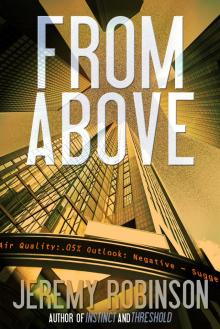 From Above - A Novella
From Above - A Novella Flux
Flux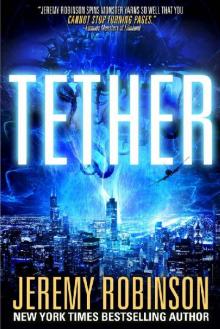 Tether
Tether Exo-Hunter
Exo-Hunter Pulse
Pulse Cannibal
Cannibal Omega: A Jack Sigler Thriller cta-5
Omega: A Jack Sigler Thriller cta-5 Flood Rising (A Jenna Flood Thriller)
Flood Rising (A Jenna Flood Thriller)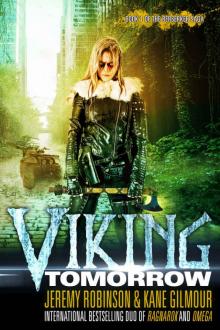 Viking Tomorrow
Viking Tomorrow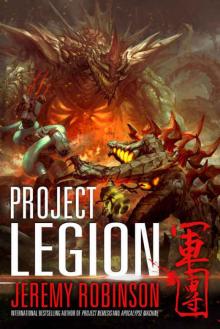 Project Legion (Nemesis Saga Book 5)
Project Legion (Nemesis Saga Book 5) BENEATH - A Novel
BENEATH - A Novel Kronos
Kronos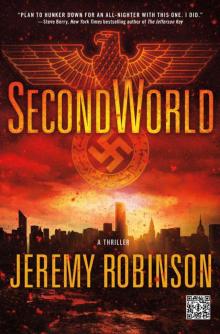 SecondWorld
SecondWorld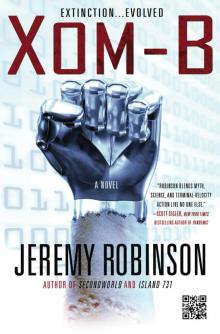 XOM-B
XOM-B Forbidden Island
Forbidden Island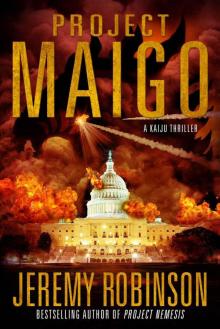 Project Maigo
Project Maigo The Last Hunter - Descent (Book 1 of the Antarktos Saga)
The Last Hunter - Descent (Book 1 of the Antarktos Saga)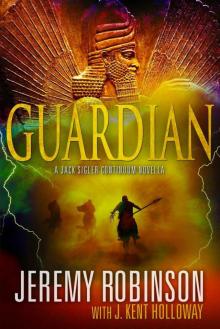 Jack Sigler Continuum 1: Guardian
Jack Sigler Continuum 1: Guardian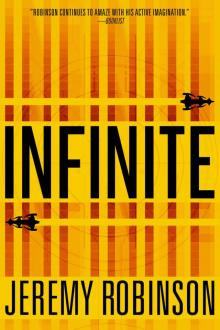 Infinite
Infinite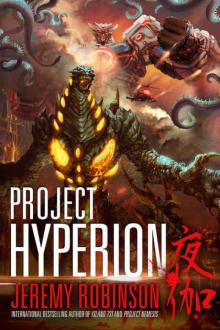 Project Hyperion
Project Hyperion The Distance
The Distance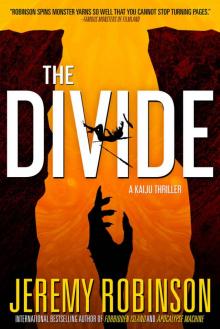 The Divide
The Divide The Last Hunter - Ascent (Book 3 of the Antarktos Saga)
The Last Hunter - Ascent (Book 3 of the Antarktos Saga) The Last Hunter - Pursuit (Book 2 of the Antarktos Saga)
The Last Hunter - Pursuit (Book 2 of the Antarktos Saga) Raising the Past
Raising the Past The Others
The Others The Last Hunter - Collected Edition
The Last Hunter - Collected Edition Threshold
Threshold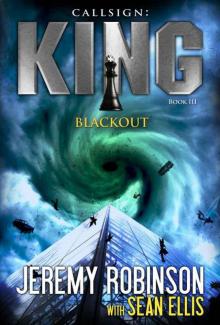 Blackout ck-3
Blackout ck-3 Antarktos Rising
Antarktos Rising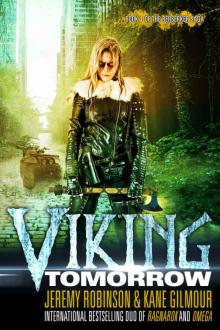 Viking Tomorrow (The Berserker Saga Book 1)
Viking Tomorrow (The Berserker Saga Book 1) The Didymus Contingency
The Didymus Contingency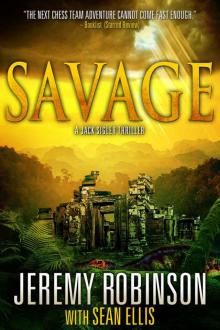 Savage (Jack Sigler / Chess Team)
Savage (Jack Sigler / Chess Team)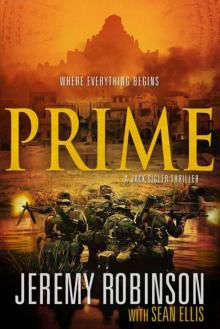 Prime
Prime Insomnia and Seven More Short Stories
Insomnia and Seven More Short Stories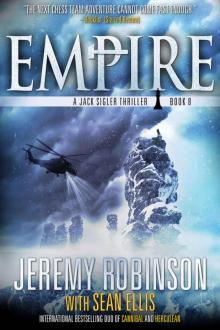 Empire (A Jack Sigler Thriller Book 8)
Empire (A Jack Sigler Thriller Book 8)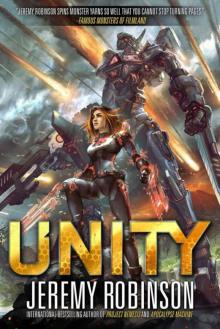 Unity
Unity Instinct
Instinct The Last Hunter - Lament (Book 4 of the Antarktos Saga)
The Last Hunter - Lament (Book 4 of the Antarktos Saga)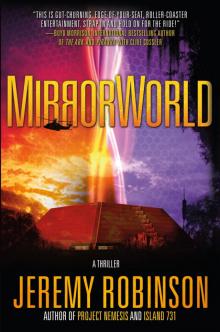 MirrorWorld
MirrorWorld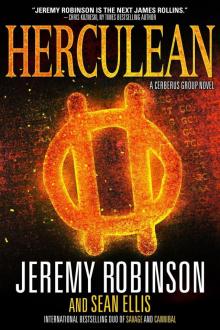 Herculean (Cerberus Group Book 1)
Herculean (Cerberus Group Book 1)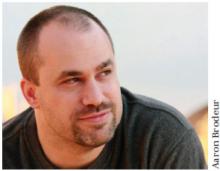 Island 731
Island 731 Omega: A Jack Sigler Thriller
Omega: A Jack Sigler Thriller Patriot (A Jack Sigler Continuum Novella)
Patriot (A Jack Sigler Continuum Novella) 5 Onslaught
5 Onslaught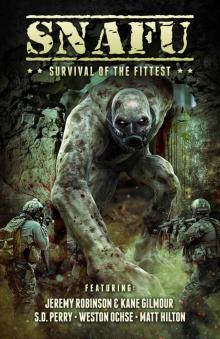 SNAFU: Survival of the Fittest
SNAFU: Survival of the Fittest Helios (Cerberus Group Book 2)
Helios (Cerberus Group Book 2)